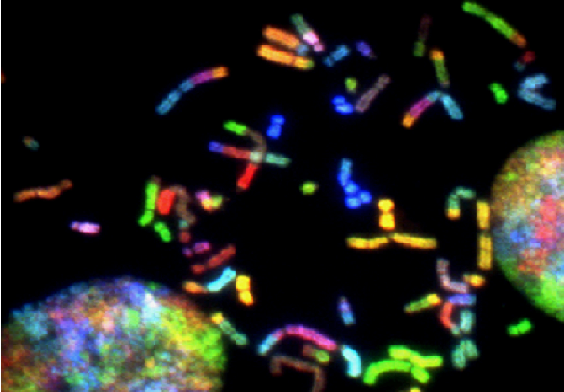March 10, 2023: “Pfizer Inc. announced the U.S. FDA has approved ZAVZPRET™ (zavegepant), the first and only calcitonin gene-related peptide (CGRP) receptor antagonist nasal spray for the acute treatment of migraine with or without aura in adults.
In its pivotal Phase 3 study, ZAVZPRET was statistically superior to placebo on the co-primary endpoints of pain freedom and freedom from most bothersome symptom at two hours post-dose.
The pivotal study also demonstrated pain relief as early as 15 minutes in a prespecified secondary endpoint versus placebo.
“The FDA approval of ZAVZPRET marks a significant breakthrough for people with migraine who need freedom from pain and prefer alternative options to oral medications,” said Angela Hwang, Chief Commercial Officer, President, Global Biopharmaceuticals Business, Pfizer.
“ZAVZPRET underscores Pfizer’s commitment to delivering an additional treatment option to help people with migraine gain relief and get back to their daily lives. Pfizer will continue to build its migraine franchise to further support the billions of people worldwide impacted by this debilitating disease.”
The FDA approval is based on two pivotal randomized, double-blind, placebo-controlled studies that established the efficacy, tolerability and safety profiles of ZAVZPRET for the acute treatment of migraine.
In these studies, ZAVZPRET was statistically superior to placebo on the co-primary endpoints of pain freedom (defined as a reduction of moderate or severe headache pain to no headache pain) and freedom from most bothersome symptom at two hours post-dose (defined as the absence of the self-identified most bothersome symptom).
The pivotal Phase 3 study published in The Lancet Neurology found ZAVZPRET showed broad efficacy by also demonstrating statistically significant superiority to placebo across 13 of 17 prespecified secondary outcome measures, including early time point endpoints (e.g., 15 and 30-minute pain relief and return to normal function at 30 minutes), return to normal function at 2 hours, and durable efficacy endpoints (e.g., 2-24 and 2-48 hour sustained pain freedom and sustained pain relief).
On the 14th endpoint, return to normal function at 15 minutes post-dose, the difference between ZAVZPRET and placebo was not significant. Consequently, in keeping with the trial’s statistical analysis plan, the remaining secondary endpoints were not formally tested.
“When a migraine hits, it has a significant negative impact on a person’s daily life,” said Kathleen Mullin, M.D., Associate Medical Director at New England Institute for Neurology & Headache.
“Among my migraine patients, one of the most important attributes of an acute treatment option is how quickly it works.
As a nasal spray with rapid drug absorption, ZAVZPRET offers an alternative treatment option for people who need pain relief or cannot take oral medications due to nausea or vomiting, so they can get back to normal function quickly.”
ZAVZPRET was well tolerated in clinical trials. The most common adverse reactions reported in at least 2% of patients treated with ZAVZPRET and at a frequency greater than placebo were taste disorders (includes dysgeusia and ageusia), nausea, nasal discomfort and vomiting.
ZAVZPRET is contraindicated in patients with a history of hypersensitivity to zavegepant or to any of its components.
Hypersensitivity reactions, including facial swelling and urticaria, have occurred with ZAVZPRET in clinical studies.
ZAVZPRET is anticipated to be available in pharmacies in July 2023.
About Migraine
Nearly 40 million people in the United States suffer from migraine and the World Health Organization classifies migraine as the second leading cause of disability in the world.
Migraine is characterized by debilitating attacks lasting four to 72 hours with multiple symptoms, including pulsating headaches of moderate to severe pain intensity often associated with nausea or vomiting, and/or sensitivity to sound (phonophobia) and sensitivity to light (photophobia).
About CGRP Receptor Antagonism
Small molecule CGRP receptor antagonists represent a novel class of drugs for the treatment of migraine.
For acute treatment, this unique mode of action offers an alternative to other agents, including those patients who have contraindications to the use of triptans or who have a poor response to triptans or are intolerant to them.
CGRP signal-blocking therapies have not been associated with medication overuse headache (MOH) or rebound headache, which can limit the clinical utility of other acute treatments.
About ZAVZPRET
Zavegepant is a third generation, high affinity, selective and structurally unique, small molecule CGRP receptor antagonist and the only CGRP receptor antagonist in clinical development with both intranasal and oral formulations.
INDICATION
ZAVZPRET™ (zavegepant) is indicated for the acute treatment of migraine with or without aura in adults.
Limitations of Use: ZAVZPRET is not indicated for the preventive treatment of migraine.
IMPORTANT SAFETY INFORMATION
Contraindications: Hypersensitivity to ZAVZPRET or any of its components.
Warnings and Precautions: Hypersensitivity reactions, including facial swelling and urticaria, have occurred with ZAVZPRET. If a hypersensitivity reaction occurs, discontinue ZAVZPRET and initiate appropriate therapy.
Adverse Reactions: Most common adverse reactions (occurring in ≥2% of patients treated with ZAVZPRET and greater than placebo) for ZAVZPRET vs placebo were taste disorders including dysgeusia and ageusia (18% vs 4%), nausea (4% vs 1%), nasal discomfort (3% vs 1%), and vomiting (2% vs 1%).
Drug Interactions: Avoid use with drugs that inhibit or induce OATP1B3 or NTCP transporters. Avoid use of intranasal decongestants; if unavoidable, administer intranasal decongestants at least 1 hour after ZAVZPRET administration.
Use in Specific Populations:Hepatic Impairment: Avoid use in patients with severe hepatic impairment. Renal impairment: Avoid use of ZAVZPRET in patients with creatine clearance (CLcr) less than 30 mL/min.”












